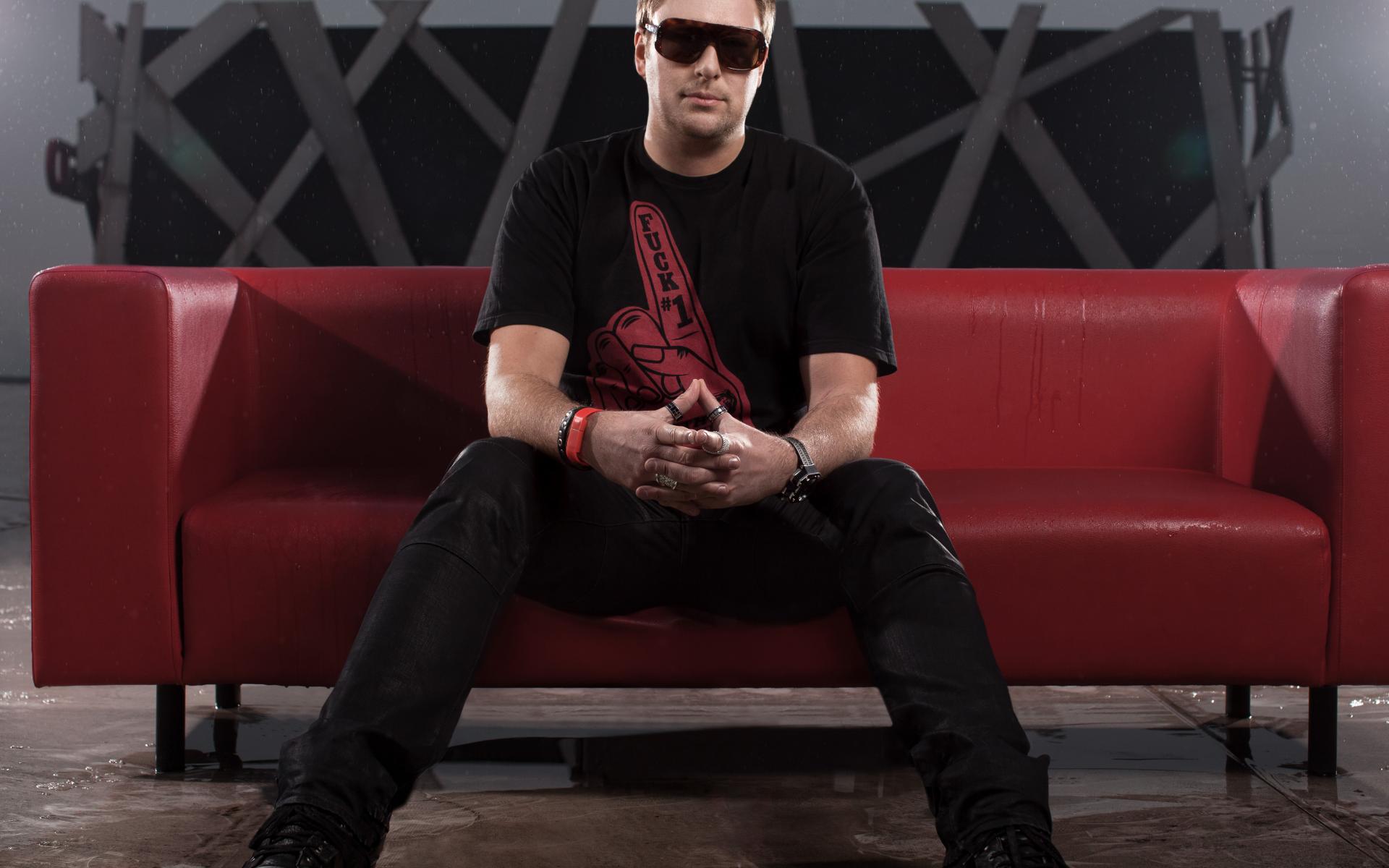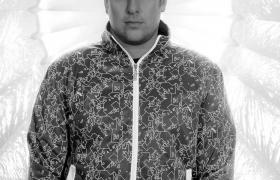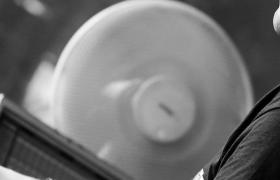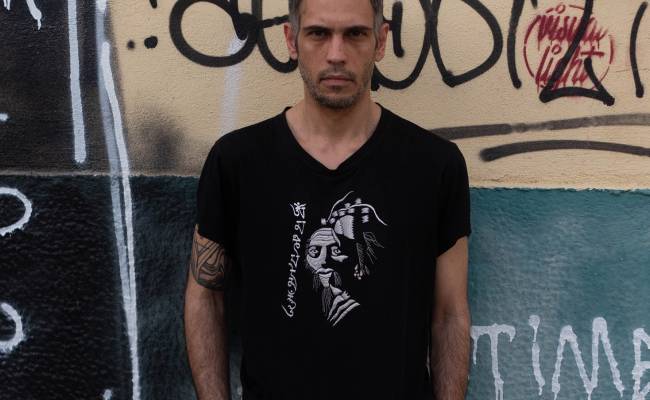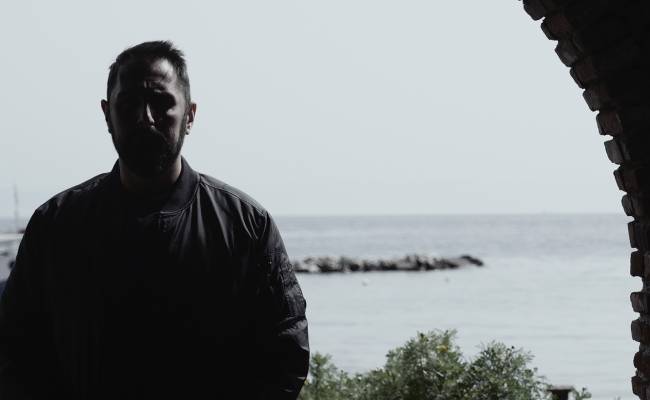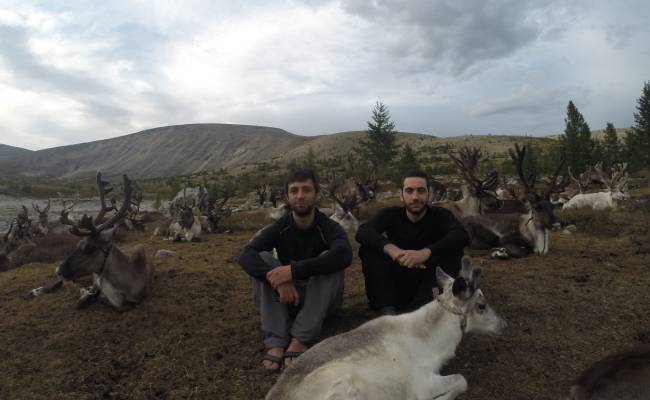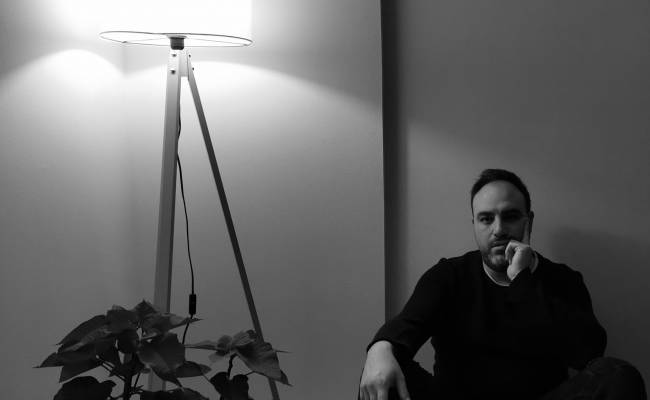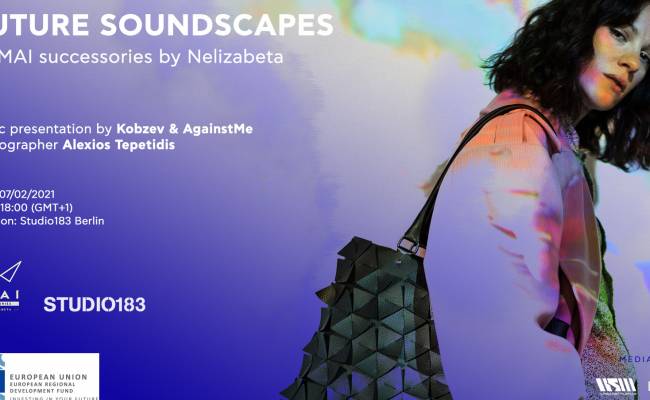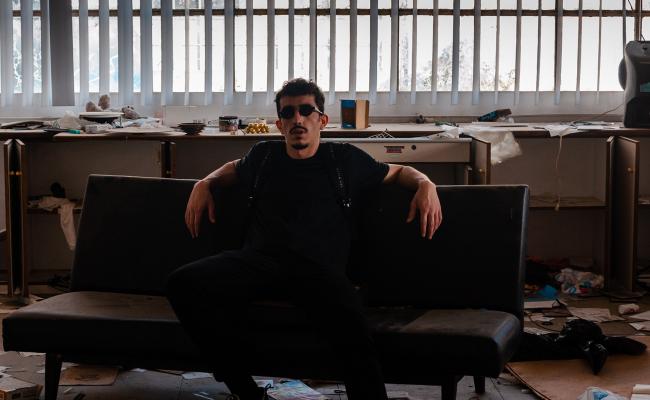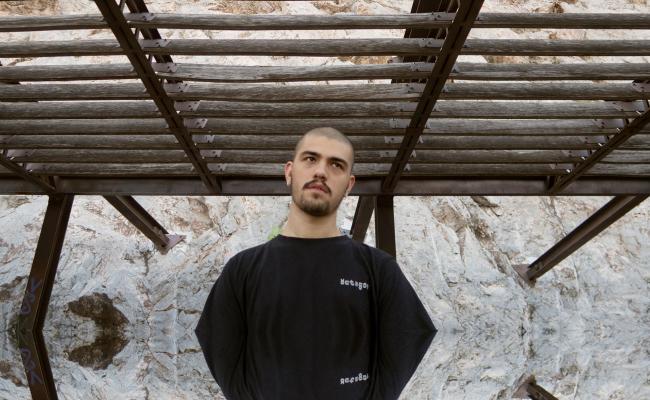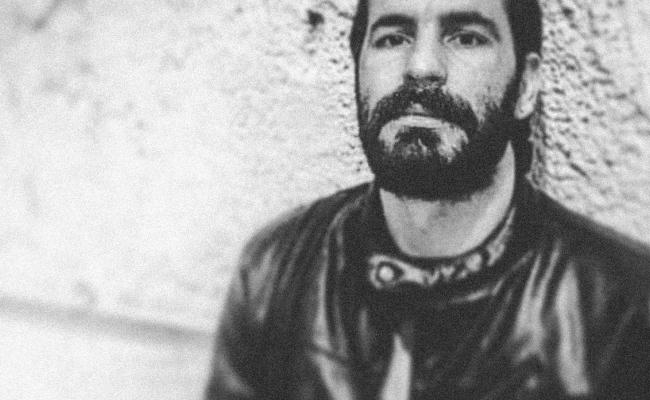UMEK interview
UMEK interview
Exclusive
Editor Odisseas Panierakis
Sat 26 Mar 2016
We are having a talk with one of the international electronic music scene magnates, ahead of his forthcoming gig which will be held by Evolution, on the 20th of April. An artist who has managed to establish himself in the scene since its very beginning. A dynamic Dj, a producer with a hoard of inspiration and creativity that never seems to end and also the owner of the greatest Techno label, 1605 Music Therapy, interviewed exclusively for UrbanStyleMag. We give you... UMEK!
How did you discover Techno?
In the beginning it was really hard for me to be in touch with electronic music as the scene in Slovenia was non-existing ‘till the beginning of ‘90s when I discovered Cool Night show hosted by Aldo Ivancic, MC Brane and Primoz Pecovnik on Radio Student. They played all kinds of electronic music, from trance, rave, techno, EBM, some really dark stuff … Soon after they started their nights in the student union’s club K4. I became a regular and afterwards I got introduced to artists such as Jure Havlicek (Anna Lies, Moob, now working in the neo-disco scene under a moniker Sare Havlicek) who invited me into his studio and showed me how this music is done. In that time, I was doing my first steps as a producer, using 8-bit Screen Tracker with 4 mono channels and we sampled our sound from the tape cassettes. It was far from being professional but we spent all of our time making music. And when Jure showed me his Rolands 808 and 909 and all other classic machines, I knew that’s exactly what I wanted to do in my life. As there was no copyright legislature in Slovenia at the time I started selling pirate cassettes for a pirate recording label with my friends and soon gathered enough money to buy my first proper sampler. We bought it from Random Logic and the one half of that project, Gregor Zemljic, did a lot of mastering of my music later. He’s now one of the greatest international experts in that field.
In terms of artists, there are few who really influenced me, each in his own way. Todd Terry produced Royal House’s ‘Can You Party’ which was the record that got me into house and electronic dance music in the first place. Westbam was the leader of German techno movement in the early ‘90s when I discovered raves and I decided to focus only on darker techno because of Surgeon and the rest of the Birmingham crew. As a deejay I found a lot of inspiration watching Jeff Mills doing his mixing, Carl Cox was the #1 master of building energy on the dance floor. It was really amazing watching this guy mixing records on three decks at the same time. Claude Young was also an inspiration. Music was the main thing, but I’ve adored deejays that were not afraid fiddling with knobs and switches. I ‘ve learned that every piece of equipment you are using is there to be exploited to the limits.
There's a cliché that combines techno stages and parties with drugs. What's your opinion on that?
As every other subculture and culture on our planet, techno is also related to specific drugs, although I don't think the intensity of drug abuse in techno scene is exceptionally different than in other music subcultures, it's rather associated with particular drugs. But even that can be a cliché. For example, ecstasy is considered to be a techno drug but in the last decade it also became very popular within the USA hip hop community. Personally I don’t take drugs and I support healthy life - I do not use but I don’t judge either.
How would you describe the perfect gig?
Well perfect gigs actually do happen, but they depend on a bunch of conditions which have to exist simultaneously. These are: pleasant, technically well equipped and packed venue, very responding crowd on the dancefloor, I have to be in the right mood and satisfied with my work technically and creatively. As I’m very demanding towards myself and others as well, this can happen only couple of times a year, but I’m not satisfied with my work if I don’t get to at least 95% of that perfect gig mark at every performance I do.
The PR evolution turned electronic music genres into a mainstream trend. Do you believe that Techno is a strictly underground genre? Is that how it's supposed to be?
It depends on the variety of sound. As in most of music genres you have an underground scene as well as a more commercial stream. In techno, Berlin, for example, definitely still belongs to the underground. You can’t hear that music on the mainstream radio stations or watch those arty, mostly viral, video clips on the MTV. On the other hand we do have techno (based) track crossing over into the mainstream from time to time. Of all big EDM genres, techno has always been considered and treated by the media, music and advertising industry as some kind of “bastard”, as it sounds rough, it’s mostly non-vocal, bound to experimenting and avoiding clichés … So it was never exploited as much as trance and house which are much more radio friendly and close to the taste of pop audience. So it never went extremely commercial but it never faded away either. Techno is always here somewhere in the shadows of media spotlight, but at the same time it’s much more present in the clubs and festivals than you ‘d think judging by its presence in the media. Which is not bad for the genre at all.
When did you decide that you wanted to launch your own imprint?
I grounded my first label, with some of my colleagues, already in 1995/96. We started this venture without knowledge; we improvised a lot and learned along the way. Now we are in this business for such a long time that we do this as a routine, although we had to change a lot of our operations when the distribution of vinyl was drastically decreased, we now have to adapt to a world of predominantly digital labels. A couple of things influenced the decision to start my own imprint, from the fact that I just shifted from analogue to completely digital platform as a deejay and producer, creatively I parted with Valentino, I slowed down the pace of my music, the whole world of deejaying and EDM music changed radically at the time, but the main reason for launching 1605 – Sixteenofive- was that I wanted to have a label where I would be in a total creative control and I wouldn’t need to compromise for anyone, but at the same time I’d be fully and personally responsible for the project. Four or five years later I can say it was a brave and proper decision, although I must admit I wouldn ‘t have made such a successful story out of it without the help of my dedicated professional team. I know a lot of artists and labels that were very successful in the vinyl era but just can’t make a break on the digital platform. So, the success of 1605 label was in no way granted and we could have crashed and burnt with it – but we didn’t.
If I were a new artist and I wanted to get one of my tracks released on 1605 Music Therapy, what should I do?
First step is to create a good track that I’d want to play in my sets and on my Behind the Iron Curtain radio show. The easiest way to get noticed and potentially released is to upload the track on 1605 Soundcloud profile – instructions and the legal framework are available on 1605 website (www.sixteenofive.com). We still get promos on CDs from time to time but that’s not the right way to deal with us, as we lose them unintentionally all the time and it would be a shame to overlook a good track just because we’re clumsy with CDs. Send your promos digitally, please.
We live in a world where Internet makes things way easier for everyone. What are the differences between now and the days you started evolving?
For a start I don’t have to record hundreds of tape cassettes, buy and write all those annoying envelopes and pay a lot of money to get them delivered all around Europe by mail; at the time it took at least a week to get them to the labels. It used to take me a month from recording a demo to getting the letter from the label in which they usually wrote that they like my tracks but they’re not suitable for their program. Nowadays you can get a track released in two or three weeks with all basic promotion. It may still take half a year to get it released on some labels, but in the past that was more or less the rule. This is just one of the many things in our business that Internet has drastically changed.
Finally, give us your top5 tracks of all time.
Sorry I don’t have time to think this trough properly, so instead of 5 top tracks of all time I’m listing – in no particular order - five "oldies goldies" that I can think from the top of my head right now:
Joey Beltram – "Caliber" (Warp Records)
Quadrophonia – "Quadrophonia" (ARS productions / RCA records)
LFO – "LFO" (Warp Record)
Cubic 92 – "Night In Motion" (XL Recordings)
Royal House – "Can You Party (Can You Feel It)" (CSR - Central Station Records)
Thank you for your time.
No problem, thank you for your questions and all the best to your magazine.
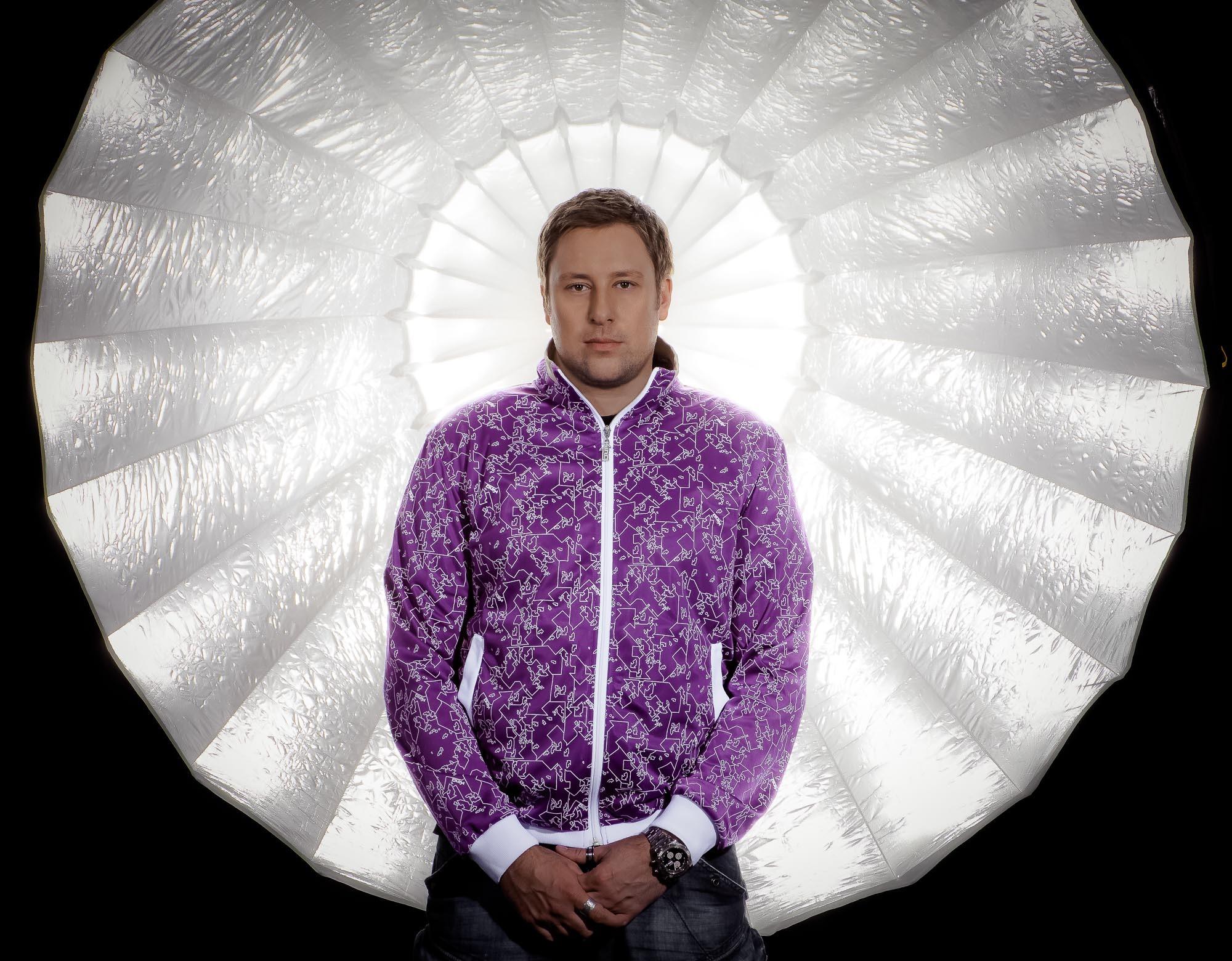
Μια από τις μεγαλύτερες φιγούρες της παγκόσμιας ηλεκτρονικής σκηνής από την γέννηση της κιόλας, δέχτηκε να μιλήσει μαζί μας εν όψει του gig που διοργανώνει η Evolution στις 20 Απριλίου. Δυναμικός DJ, παραγωγός με αστείρευτη έμπνευση και διάθεση για δημιουργία και ιδιοκτήτης του μεγαλύτερου Techno Label, της 1605 Music Therapy. Για πρώτη φορά σε Ελληνικό έντυπο και αποκλειστικά από το UrbanStyleMag... ο UMEK!
Πώς ανακάλυψες τηνTechno?
Αρχικά ήταν πολύ δύσκολο για μένα να έρθω σε επαφή με την ηλεκτρονική μουσική, αφού η σκηνή στη Σλοβενία ήταν ανύπαρκτη μέχρι τις αρχές της δεκαετίας του ’90. Τότε ανακάλυψα το Cool Night show των Aldo Ivancic, MC Brane και Primoz Pecovnik στο Radio Student. Έπαιζαν πολλά είδη ηλεκτρονικής μουσικής, trance, rave, techno, EBM, μερικές πολύ σκοτεινές μουσικές... Σύντομα άρχισαν να κάνουν gigs στο –φοιτητικό- club K4 όπου έγινα θαμώνας. Ύστερα γνώρισα καλλιτέχνες όπως τον Jure Havlicek (Anna Lies, Moob, τώρα κινείται στη neo-disco σκηνή ως Sare Havlicek) ο οποίος με προσκάλεσε στο studio του και μου έδειξε πώς φτιάχνεται αυτή η μουσική. Τότε έκανα τα πρώτα μου βήματα σαν παραγωγός, χρησιμοποιούσα 8-bit Screen Tracker με 4 mono κανάλια και έφτιαχνα τον ήχο και τα samples από κασέτες. Ήταν ερασιτεχνικό μεν, όμως περνούσα όλο το χρόνο μου φτιάχνοντας μουσική, οπότε όταν ο Jure μου έδειξε τα Rolands 808 και 909 και όλα τα κλασικά μηχανήματα, ήξερα ότι αυτό ακριβώς ήθελα να κάνω στη ζωή μου. Εφόσον τότε ακόμα δεν υπήρχε στη Σλοβενία νομοθεσία σχετικά με τα πνευματικά δικαιώματα, άρχισα να πουλάω πειρατικές κασέτες για ένα πειρατικό label με τους φίλους μου και σύντομα είχα αρκετά χρήματα για να αγοράσω το πρώτο μου κανονικό sampler. Το αγοράσαμε από το Random Logic και το έτερον ήμισυ αυτού του project, ο Gregor Zemljic, έκανε αργότερα το mastering μεγάλου μέρους της μουσικής μου. Πλέον είναι ένας από τους πιο καταξιωμένους ειδικούς σ’ αυτον τον τομέα διεθνώς.
Όσον αφορά σε καλλιτέχνες, υπάρχουν κάποιοι που πραγματικά με επηρέασαν, ο καθένας με το δικό του τρόπο. Ο Todd Terry που έκανε με τη Royal House το ‘Can You Party’, το δίσκο που αρχικά με σύστησε στη house και στην ηλεκτρονική dance μουσική. Ο Westbam ήταν ηγετική φυσιογνωμία στο γερμανικό techno κίνημα των early ‘90s, όταν ανακάλυψα τα raves και αποφάσισα να εστιάσω στην πιο σκοτεινή techno λόγω του Surgeon και του υπόλοιπου Birmingham crew. Σαν DJ εμπνεύστηκα πολύ παρακολουθώντας τον Jeff Mills να μιξάρει. Ο Carl Cox ήταν νούμερο 1 στο χτίσιμο ενέργειας στο dance floor. Ήταν πραγματικά καταπληκτικό να τον παρακολουθώ να μιξάρει δίσκους σε 3 decks ταυτόχρονα. Ο Claude Young αποτέλεσε επίσης έμπνευση. Η μουσική ήταν μεν το κυρίως θέμα του ενδιαφέροντός μου, όμως πάντα λάτρευα τους DJs που δεν φοβόντουσαν να πειράζουν κουμπιά και να πειραματίζονται με τα μηχανήματα. ‘Εμαθα ότι το κάθε κομμάτι του εξοπλισμού που χρησιμοποιείς, είναι εκεί για να το εκμεταλλευτείς στο έπακρο.
Υπάρχει ένα κλισέ που συνδυάζει την techno σκηνή και τα parties με τα ναρκωτικά. Ποια είναι η γνώμη σου γι’ αυτό;
Όπως κάθε άλλη κουλτούρα και υπο-κουλτούρα στον κόσμο, η techno σχετίζεται με κάποια ναρκωτικά. Αν και δε νομίζω πως η κατάχρηση είναι περισσότερο έντονη στην techno σκηνή, μάλλον αυτή είναι συνδεδεμένη με συγκεκριμένα ναρκωτικά. Όμως ακόμα κι αυτό μπορεί να αποτελεί κλισέ. Για παράδειγμα, το ecstasy θεωρείται «techno ναρκωτικό», όμως την τελευταία δεκαετία έχει γίνει πολύ δημοφιλές και στη hip hop σκηνή των ΗΠΑ. Προσωπικά δεν κάνω χρήση και προτιμώ τον υγιεινό τρόπο ζωής, δεν παίρνω ναρκωτικά όμως ούτε και κατακρίνω αυτούς που το κάνουν.
Πώς θα περιέγραφες το τέλειο gig;
Τα τέλεια gigs συμβαίνουν μεν, όμως απαιτούν ένα σύνολο από προϋποθέσεις οι οποίες πρέπει να συνυπάρχουν ταυτόχρονα. Αυτές είναι: ευχάριστος χώρος, τεχνικά καλά εξοπλισμένος και γεμάτος, κοινό που να ανταποκρίνεται και εμένα στο σωστό mood και ικανοποιημένο από τη δουλειά μου τόσο σε δημιουργικό όσο και σε τεχνικό επίπεδο. Καθώς είμαι απαιτητικός με τον εαυτό μου και με τους άλλους, αυτό συμβαίνει λίγες φορές το χρόνο. Όμως επίσης δεν είμαι και ικανοποιημένος από τη δουλειά μου άμα δε φτάσω τουλάχιστον στο 95% αυτού που έχω θέσει ως στόχο για το τέλειο gig, κάθε φορά που παίζω.
Η εξέλιξη του PR έχει κάνει γενικά την ηλεκτρονική μουσική mainstream. Πιστεύεις πως συγκεκριμένα η Techno είναι καθαρά underground είδος και πως έτσι πρέπει να είναι;
Εξαρτάται από την ποικιλία στους ήχους. Όπως στα περισσότερα είδη μουσικής, έχεις μια underground σκηνή όπως και ένα περισσότερο εμπορικό ρεύμα. Όσον αφορά στην techno, το Βερολίνο για παράδειγμα, ανήκει ακόμα αδιαμφισβήτητα στην underground. Δεν ακούς αυτή τη μουσική σε mainstream ραδιοφωνικούς σταθμούς ούτε πετυχαίνεις αυτά τα -κυρίως viral- arty video clips στο MTV. Από την άλλη, κατά καιρούς υπάρχουν όντως techno κομμάτια (ή μάλλον με techno βάσεις) που περνούν το χάσμα και γίνονται mainstream.
Από όλα τα μεγάλα είδη της EDM, η techno πάντα αντιμετωπίζεται και θεωρείται από τις βιομηχανίες των media, της μουσικής και της διαφήμισης ως «μπάσταρδο», αφού είναι τραχύς ήχος, ως επί το πλείστον χωρίς φωνητικά, πάντα πειραματίζεται και αποφεύγει τα κλισέ… Οπότε δεν εκμεταλλεύτηκε ούτε αναλώθηκε ποτέ όσο η trance και η house, που είναι περισσότερο radio friendly και πιο κοντά στα γούστα του ποπ κοινού. Γι’ αυτό δεν έγινε ποτέ πολύ εμπορική, όμως ούτε και εξασθένησε. Η techno είναι πάντα εδώ, υπάρχει στη σκιά και όχι στο προσκήνιο, παράλληλα όμως είναι παρούσα στα clubs και τα festivals πολύ περισσότερο απ’ ότι νομίζει κανείς κρίνοντας μόνο από τα media. Κάτι που δεν την βλάπτει καθόλου.
Πότε αποφάσισες να λανσάρεις το δικό σου imprint;
Είχα ξεκινήσει ήδη το πρώτο μου label μαζί με κάποιους συνεργάτες ήδη από το 1995/96. Αρχικά το τολμήσαμε χωρίς καμία γνώση, αυτοσχεδιάσαμε πολύ και μάθαμε πολλά στην πορεία. Τώρα πλέον είμαστε στο χώρο τόσο πολύ καιρό που το κάνουμε αυτόματα σχεδόν, σαν διαδικασία ρουτίνας, αν και χρειάστηκε να αλλάξουμε πολλές λειτουργίες όταν μειώθηκε δραστικά η διανομή βινυλίων. Πλέον πρέπει να προσαρμοστούμε στον κόσμο των –κυρίως- ψηφιακών labels.
Η απόφασή μου να ξεκινήσω το δικό μου imprint επηρεάστηκε από αρκετούς παράγοντες. Από το γεγονός πως από την αναλογική είχα μόλις γυρίσει τελείως στην ψηφιακή πλατφόρμα σαν DJ και παραγωγός, είχαμε διασπαστεί σε επίπεδο δημιουργικότητας με το Valentino, επιβράδυνα λίγο την παραγωγή μου, όλη η σκηνή του deejaying και της EDM άλλαξε ριζικά την εποχή εκείνη, όμως ο κύριος λόγος για τη δημιουργία 1605 – Sixteenofive- ήταν το ότι ήθελα να έχω ένα label όπου θα είχα πλήρη έλεγχο στο δημιουργικό κομμάτι και δεν θα χρειαζόταν να κάνω συμβιβασμούς για κανένα, όμως ταυτόχρονα θα είχα πλήρη και προσωπική ευθύνη του project. Τέσσερα ή πέντε χρόνια μετά μπορώ να πω πως ήταν μια γενναία και σωστή απόφαση, οφείλω όμως να παραδεχτώ πως δεν θα είχα την ίδια επιτυχία χωρίς τη βοήθεια και την αφοσίωση του επαγγελματικού μου team. Γνωρίζω πολλούς καλλιτέχνες και labels που σημείωσαν μεγάλη επιτυχία την εποχή του βινυλίου όμως δεν τα κατάφεραν το ίδιο καλά στην ψηφιακή πλατφόρμα. Επομένως η επιτυχία του 1605 δεν ήταν σε καμία περίπτωση δεδομένη, θα μπορούσαμε να έχουμε βουλιάξει με αυτή- όμως δε βουλιάξαμε.
Αν ήμουν νέος καλλιτέχνης και ήθελα να κυκλοφορήσω ένα κομμάτι μου με την 1605 Music Therapy, τι θα έπρεπε να κάνω;
Το πρώτο βήμα θα ήταν να φτιάξεις ένα καλό κομμάτι που θα ήθελα να παίξω σε set μου και στο Behind the Iron Curtain radio show μου. Ο ευκολότερος τρόπος για να αποσπάσεις προσοχή και να έχεις την ευκαιρία να κάνεις release είναι να ανεβάσεις το κομμάτι στο προφίλ της 1605 στο Soundcloud – τις οδηγίες και το νομικό πλαίσιο μπορείς να τα βρεις στο website της 1605 (www.sixteenofive.com). Εξακολουθούμε να δεχόμαστε promo Cds κατά καιρούς, όμως δεν είναι ο σωστός και ο πιο σίγουρος τρόπος να επικοινωνήσεις μαζί μας, αφού συνεχώς χάνονται κατά λάθος και θα ήταν κρίμα να παραβλέψουμε ένα καλό κομμάτι μόνο και μόνο επειδή είμαστε απρόσεκτοι με τα CDs. Στέλνετε τα promo σας σε ψηφιακή μορφή, παρακαλώ.
Ζούμε σε μία εποχή όπου το internet κάνει τα πάντα ευκολότερα για τον καθένα. Ποιες είναι οι διαφορές μεταξύ του τώρα και της εποχής που άρχισες να εξελίσσεσαι;
Πρώτ’ απ’ όλα δε χρειάζεται να γράφω εκατοντάδες κασέτες, να αγοράζω και να γράφω ενοχλητικούς φακέλους και στη συνέχεια να πληρώνω πολλά λεφτά για να τους στέλνω σε όλη την Ευρώπη με το ταχυδρομείο. Τότε έπαιρνε τουλάχιστον μία εβδομάδα για να φτάσουν στα labels. Συνολικά μου έπαιρνε ένα μήνα από τη στιγμή που θα έγραφα ενα demo μέχρι να πάρω ένα γράμμα το οποίο συνήθως θά ‘λεγε ότι τους άρεσαν τα κομμάτια μου αλλά δεν είναι συμβατά με αυτό που θέλουν. Πλέον μπορείς να κάνεις release μέσα σε δύο ή τρεις εβδομάδες, μαζί με όλο το βασικό promotion. Ίσως μερικές φορές εξακολουθεί να χρειάζεται μισός χρόνος για να κάνεις release με ορισμένα labels, όμως τότε αυτό ήταν ο κανόνας. Αυτό είναι ένα μόνο από τα πολλά πράγματα που έχουν αλλάξει ριζικά στη δουλειά μας με το internet.
Τέλος, δώσε μας τα πέντε κομμάτια που εσύ θεωρείς top5 όλων των εποχών.
Λυπάμαι, θέλει πολύ χρόνο για να το σκεφτώ αυτό όπως θά ‘πρεπε, οπότε θα σας δώσω –χωρίς συγκεκριμένη σειρά- πέντε "oldies goldies" που μου έρχονται στο μυαλό τώρα.
Joey Beltram – "Caliber" (Warp Records)
Quadrophonia – "Quadrophonia" (ARS productions / RCA records)
LFO – "LFO" (Warp Record)
Cubic 92 – "Night In Motion" (XL Recordings)
Royal House – "Can You Party (Can You Feel It)" (CSR - Central Station Records)
Σ’ ευχαριστούμε για το χρόνο σου.
Παρακαλώ, κι εγώ σας ευχαριστώ για τις ερωτήσεις και εύχομαι ό,τι καλύτερο για το περιοδικό σας.

